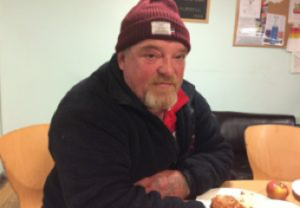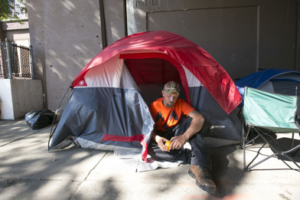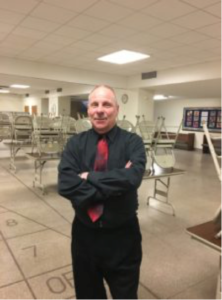Tackling the South Bend Homeless Problem
Guiding Principle 1: Make it Personal
- There is no clear or direct path to homelessness.
- Homelessness is almost always a combination of factors.
- They need personalized guidance and care based on their situation and background.
- Help them prioritize in an individualized way.
- “I would like a more personalized experience to get housing. Right now it is difficult to work with the broad requirements. I just can’t meet them.” – Rodney (Soup Kitchen, individual interview)
- “I think it would help to have one person that I can go to with my needs. Right now I don’t have that person though. I have to work with different people and groups for getting Medicare/Medicaid, Housing, and Food. It’s a lot of people to try and work with” – Daniel (Homeless by Starbucks, individual interview)

Guiding Principle 2: Stop Me Before I Get There
- The best way to combat homeless is to prevent it in the first place.
- Help them before they hit rock bottom to avoid falling into homelessness.
- Clear need for preventive resources.
- Very difficult identifying individuals on the brink of losing their home, job, or support system.
- Preventing homelessness is also teaching people about how to prevent getting entangled in dangerous cycles. These cycles include debt, drug abuse, and many others.
- “I knew a man who once owned his own business. He had a family and was very successful, until he succumbed to alcoholism. This man lost everything, including his business, family, and house, in only a matter of years. There should have been better resources to stop this man from falling victim to homelessness.” – Rob Booker (Correctional Facility Director, expert interview)
- “I also knew a man in my correctional facility who was in and out of criminal trouble for years. Now I know his son because he is the same way.” – Rob Booker (Correctional Facility Director, expert interview)
- Drug addicts don’t say they have a problem they just say they self medicate.” – Bill (Homeless Individual from Food Kitchen)

Guiding Principle 3: Homeless Beyond Just a House
- Homelessness isn’t simply not having a place to live.

- They often lack a support system, which can be pivotal to getting people out of homelessness and back on their feet.
- Help them establish a strong network that can see to their success not only during homelessness, but also beyond.
- Sometimes being homeless is not a result of economic difficulties rather a result of a mindset wanting to be separated from society or responsibilities.
- Providing shelter and moving the homeless from one location to the other is not a viable solution. They need to be motivated and given counseling and professional help to rise from their situations.
- “My family is no longer around, and my wife’s family won’t even speak to me. They think I dragged her into homelessness with me.” – Daniel (Homeless by Starbucks, individual interview)
- “How do you define homelessness? In my opinion, it transcends simply not owning a house. It includes lacking a job, food source, resources for substance abuse, and a clear need for a support system.” (Suzanna, expert interview)
- “My family and I are no longer in communication.” – Rodney (Soup Kitchen, individual interview)
- “The city is trying to do a quick fix…there is no structure, no professional people, no counseling to help these people.” – Robert Powell (Pastor, expert interview)
- “They need to send people out in the field and talk to these homeless people and give them a program—you can’t tell them to go and do this and do that…they’re not used to showering, used to doing laundry, it’s like training a child again. You forget these people are coming from the streets.” Robert Powell (Pastor, expert interview)

- “A lot of people choose to be homeless, they got money.”- James (Homeless Individual From Soup Kitchen, Individual Interview)
- “In special cases, people view the connection with society as a burden. They find it more beneficial to be free from that type of responsibility.” – Michael Hayes (Director of Mishawaka Food Pantry, Expert Interview)
